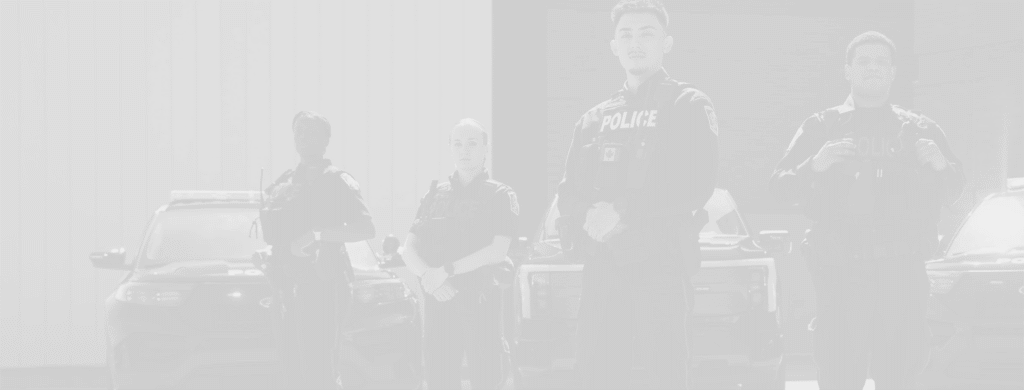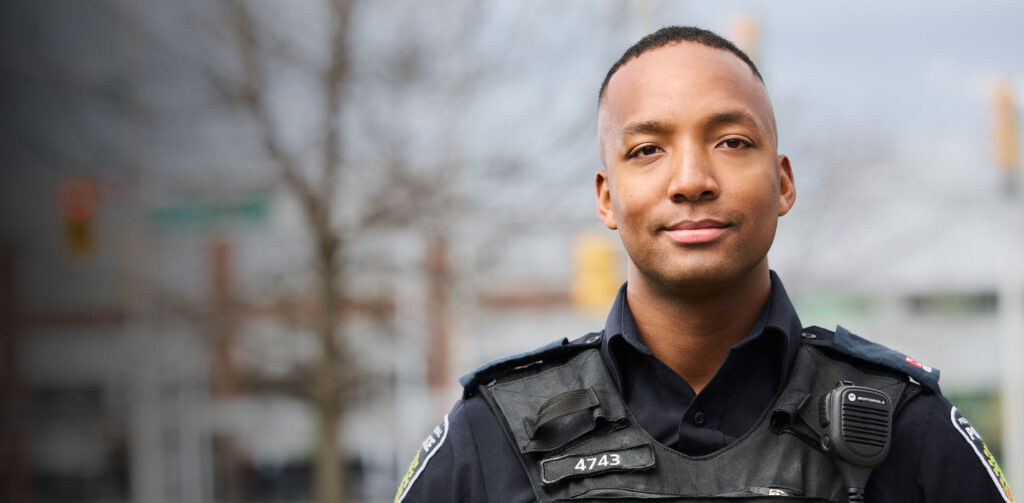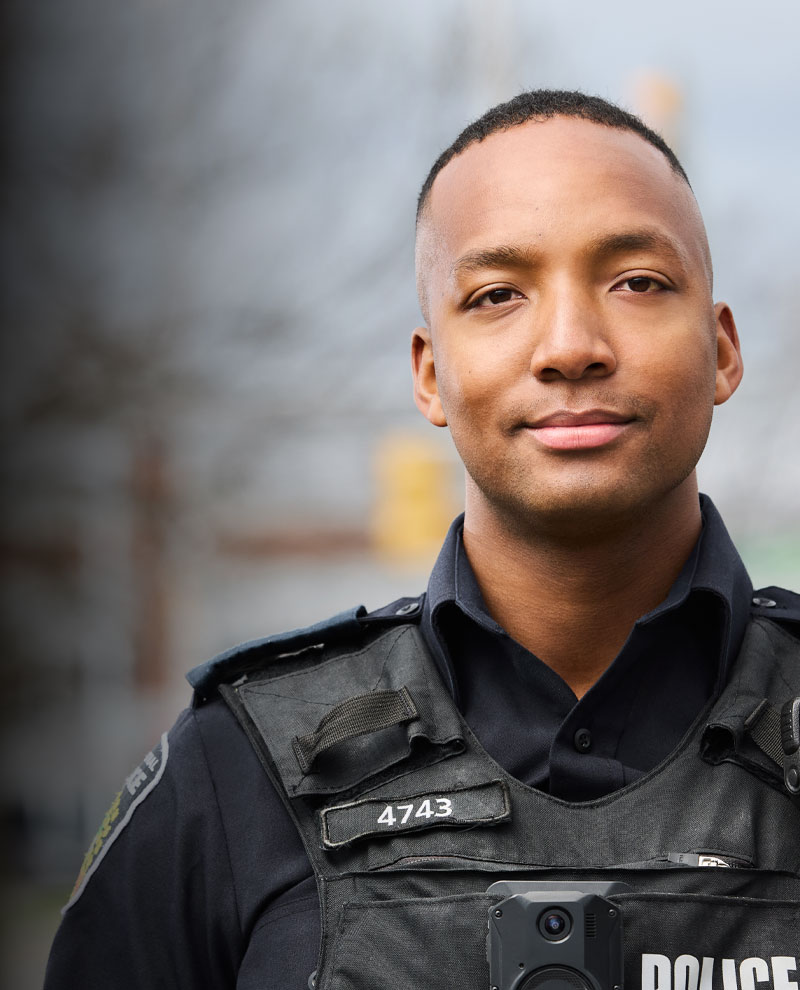The day-to-day responsibilities
As a police officer, your core duty is to serve and protect your community.
Under Ontario’s Community Safety and Policing Act (CSPA), officers are responsible for preserving the peace, preventing crimes, assisting victims, enforcing the law and maintaining public safety.

PReserving peace
Respond to emergencies, assist people in distress and help maintain order in public spaces.

Preventing crime
Patrol neighbourhoods, engage with community members and create a visible presence that helps deter criminal activity.

enforcing the law
Investigate incidents, gather evidence, lay charges when appropriate and execute warrants.

Assisting victims
Provide support to victims of crime and connect them with the right resources.

Maintaining road safety
Enforce traffic laws, assist in collisions and roadside incidents, and ensure drivers are following the rules of the road.

BUilding trust with communities
Take part in school visits, community events and outreach. Real policing is about connection as much as enforcement.
The realities of policing
Not every day is easy. There will be high-pressure situations, difficult calls and moments that stay with you. Things can change quickly, and you will be asked to respond with focus and care.
We believe in being upfront, because the people who are drawn to this work don’t shy away from challenge. They face it with purpose, knowing that what they do, and who they do it for, matters.
Click below to explore the key aspects of the job we think you should know more about.
Dealing with conflict
It’s true that police officers are often called into tense or unpredictable situations. Conflict is part of the job, and that can feel daunting, especially for those without experience in high-pressure environments.
What many people may not realize is just how much training goes into preparing officers for these moments. Recruits complete more than 100 hours of focused instruction over the course of 9 to 12 weeks, learning how to assess situations, communicate clearly and respond with control and care. In fact, many calls are not combative at all. That’s why a significant portion of training focuses on communication: learning how to listen, diffuse tension, and support people through challenging situations.
Shift work
Working nights, weekends and holidays is a valid concern for many people. It can be hard to picture a career outside the typical 9-to-5, especially when you’re thinking about family or routine. However, shift work comes with some interesting upsides.
Because shift work follows a structured and pre-set schedule, it often opens up time for things you might not typically have time for.
For example, it gives you time to pursue hobbies, support your family outside of rush hour periods, or even run a small business on the side. For those looking to make the most of their schedule, whether for personal growth or extra income, this structure can be a real advantage.
But don’t take our word for it. Sign up for our new applicant email series to get a first-hand look at what shift work is really like, straight from an officer who lives it.
Discussion in the media
Policing is often in the public eye, and recent conversations in the media have raised important and sometimes difficult questions. That level of attention can feel personal, and it’s something every officer needs to be aware of.
At the same time, this kind of scrutiny has created space for progress. Many people entering the profession today, people like you, see it as an opportunity to be part of something better. That’s why many officers are increasingly using platforms like TikTok, Instagram Reels and YouTube to build bridges and share their experience on the job.
Officers are encouraged to bring their full selves to the job, and many openly share what the work means to them. These honest, human moments, whether in person or online, help build trust. Because at the end of the day, it’s the personal interactions that leave the strongest impressions.
Supporting yourself
Officers sometimes face high-stress and traumatic situations, and it’s natural to wonder how they manage the weight of these experiences. In this profession, mental health support is taken seriously.
The Ontario government has invested over $32 million to ensure first responders have access to specialized mental health services through the Mental Health Supports for Public Safety Personnel (MHS4PSP) program. This initiative offers resources such as a web portal for cognitive behavioural therapy, peer-support tools, a 24/7 call line and other trauma-informed services. Additionally, plans are underway to build Canada’s first dedicated post-traumatic stress injury treatment centers for first responders right here in Ontario.
Across the province, services are also expanding access to counseling, peer support teams and many other wellness resources. Talking about mental health is encouraged, and getting support is seen as a strength, not a weakness. You will never be expected to carry the job alone.
Stability, benefits and room to grow
A career in policing comes with more than purpose and pride. It also provides a strong foundation for financial stability, personal support and real opportunities to grow over time.
Click below to explore the key aspects of the job we think you should know.

Looking for more information?
Sign up to get real insights into what a career in policing is actually like.

